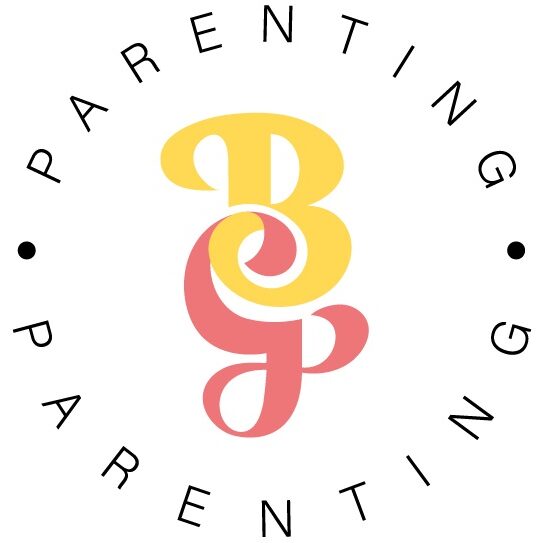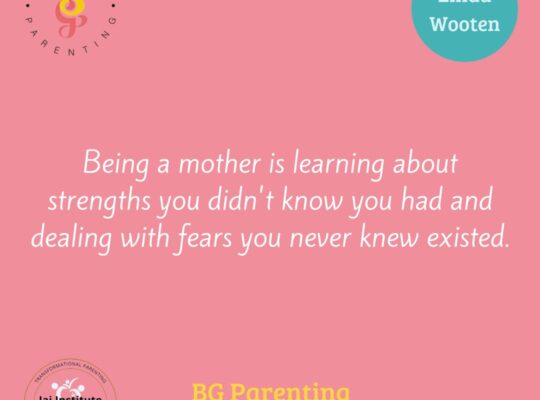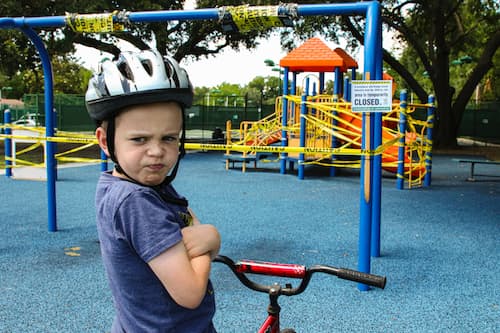This month, I’m talking about consent.
The 30th of November marks the International Day of Consent #InternationalDayofConsent2023.
And I am honoured to be a guest on Jenn Wilson from Irregular Jenn’s I Do Consent podcast, where we will chat over two episodes about consent in parent-child relationships, and how parents can influence not only their children’s mindset, but societal norms and our outdated patriarchal culture by practising consent at home.
This is a big topic! So you may want to get a drink and a comfy seat before diving in… And I’d love to hear what you think.
Is consent always about sex?
We tend to think that consent is just about bodily autonomy or sex. It isn’t!
While consent when it comes to touch is really important, teaching your child consent needs to start with everything else:
“It’s cold outside, wanna wear your coat?”
“I’d like you to come to the supermarket with me, are you up for that?”
“Would you like to finish your peas, or have you had enough for now?”
“How do you feel about me sharing this photo of us on Facebook?”
Giving your child choices and helping them get a sense of how they feel and what they need will teach them to check in with themselves to give or withhold consent when it truly matters.
When should I start thinking about consent?
There is no minimum age for this. As parents, we do have responsibilities that our children won’t always know or understand, but giving them a choice within the constraints of those responsibilities is how we can consider their autonomy.
So, for example, with the supermarket question above, you could check consent with your child like this:
“I see you’re in the middle of playing Lego. Would you like to come with me now, or after you’ve finished building this tower?”, or
“Are you feeling tired? How do you feel about sitting in the trolley and I’ll push you?”, or
“I hear you don’t want to come, and I really need to go food shopping, so you can either come with me, or I’ll ask Mrs Smith next door to keep an eye on you. What would you prefer?”
The most difficult part as a parent is coming up with creative solutions that meet your needs and your child’s, as that takes resourcefulness. This is where understanding your own needs and regulating your nervous system comes in. There are lots of small everyday exercises you can do to make that happen. Find them on social media, or in my parenting courses and workshops.
Is practising what you preach that important?
Forget “Do as I say, not as I do”! Modelling asking your child for consent teaches them to do this with other people themselves, in childhood and adulthood.
If seeking consent is part of your family culture, it will become their norm. They will not only learn to seek consent from others, but they will learn to check in with themselves and what they want, to work out whether to give or withhold that consent. Then, when someone ignores their boundaries* or doesn’t check for their consent, they will notice!
Here’s a personal example: my son has a new coat which is very soft and fluffy. His friends have been keen to touch it. Some have not resisted and stroked the coat without asking, mostly when he’s actually wearing it. So my son has called them out! He’s pointed out that they should ask him for his consent before touching the coat. After all, it’s his coat. On his body. All they need to ask is: “Can I touch your coat?”. This is empowering on two fronts: my son has the confidence to be clear about his preferences. His friends don’t need to second-guess him, they know where they stand and can act accordingly.
What happens when children don’t have a say?
A child whose consent is never sought may not have an awareness of what they feel OK with and what they don’t. You can only give proper consent if you know yourself, your boundaries, your wants and needs. If you haven’t had the opportunity to make decisions that directly affect you, your life or your body, how can you know what’s right for you?
As parents, we often think we know what’s best for our children. But we do want them to be able to work that out for themselves at some point, right? You won’t always be there to advise them. And, just like when they’re toddlers, they must fall (make poor decisions) in order to learn to walk (make good ones).
A child whose consent is not sought may also assume that their voice doesn’t matter, that they can’t speak up about their wants or needs, particularly if it’s to say “no”. We know that particularly people socialised as women and girls are still generally expected to be polite, not be outspoken, not state their needs (or be seen as demanding or high maintenance). Is that what we want? Or do we want our kids to have the confidence to say no when their safety – emotional or physical – depends on it?
Consent as a basis for trust
A culture of consent within the family unit builds trust between its members. Libby Sinback said “If a person feels forced into an outcome, the relationship will not be built on trust and respect on either side.” This is true for parent-child relationships. If you don’t seek consent from your children, is it perhaps because you don’t trust that they can make a good choice? Will they trust you to have their back if you don’t always involve them in decisions that affect them? Will they trust themselves if we think we know best and deny them autonomy?
- If we trust young people, we empower them to be trustworthy and trust themselves.
- If our young people get to make decisions, they’ll learn to make decisions that serve them well.
- If we show our young people empathy, they will learn to show it to others.
- If we guide our young people to understand themselves and know their own needs, they will be able to give consent or withhold it as they need to with more confidence.
In practice, that means guiding our children in their choices, by making agreements with them, without imposing our will on them**.
Take bedtime as an example. Your child states that they want to go to bed 2 hours later than you have set until now. What do you do? You listen to the needs and desires prompting this new idea, e.g. “Ok, so you feel that you’re old enough to stay up longer now?”. You discuss the potential results of implementing it: “You might get up two hours later too, and miss football practice. How do you feel about that?”. You empathise and explore solutions together: “It sounds like you want more time to play on your game. How about twice a week, we change our routine so you can game half an hour earlier and go to bed half an hour later than usual?”.
Be prepared for a “no”! If we’re real about this, we can’t withdraw their right to withhold consent when we don’t like the outcome! That means accepting your child’s no and making a new agreement, which could entail agreeing to what they want. Question your reasons for your own ideas on the matter**. Ask yourself: What is my child’s unmet need here?
But what if I can’t trust my kid?
Unfortunately, the opposite of the above statements is true too:
- If we go through our tween’s phone messages because they’ve lied in the past, they’ll know we don’t trust them, and they’ll hide even more from us because they won’t trust us either.
- If we say a flat no to our child’s desire to go to bed later, they’ll sneakily stay up till 2am, regardless of how tired they get, and feel rubbish the next day. Worse, they won’t admit it and the cycle of mistrust will be triggered.
- If we give our kid a lecture on kindness instead of listening to their sadness over their argument with a friend, they’ll feel shame and resentment, which will block their ability to empathise with their friend.
- If we minimise or dismiss our children’s feelings and experiences, with a comment like “you’re making a fuss about nothing”, they’ll learn to doubt themselves and not to be authentic.
It’s a downward spiral, but there is another way! If these concepts seem impossible to you because of a long-standing state of mistrust between you and your child, then please get in touch with me. I will be able to help.
Consent when it comes to bodily autonomy
So, let’s talk about bodily autonomy and sexual consent. Because, of course, this is really important too.
Some examples: With a younger child, seeking consent could look like asking your kid if they mind you ruffling their hair before your hand has reached their head. It looks like letting Granny know that Harry is up for a high five today, but he’s not up for a kiss.
Even if our children are not able to state their preferences clearly, we need to be attuned to their non-verbal cues and subtle hints, like if they shrug their shoulders when you offer them a hug, that means no. If they stand behind you when Granny wants to kiss them, that is also a no.
Again, it’s modelling that is important here. We want our kids to be respectful? We need to be respectful to them. If they are too young to speak for themselves, we need to speak for them, so that they have agency through us. Adults inherently have more power than young people. We need to redress that to empower them. We want our kids to be accountable? Let’s be accountable for their behaviour while they learn to do it for themselves, while nurturing their need for autonomy.
I really believe that general consent in childhood as I’ve laid out here is the basis for preparing our young people for consent when it comes to their body and their sexual experiences. Can you see that?
Let’s talk about sex
That’s the first step. The second step I believe is to demystify sex for young people, so it’s not about “doing it” at all cost. Sex is still so much of a taboo subject for many people, and so young people make a big deal out of it. And it is important, but not in the way it’s portrayed in our culture around losing your virginity, or getting to third base, or having penetrative sex.
The important part is for these young people is to check in with themselves, to know they feel safe, to trust the person they’re with, to care about the other person’s feelings, to feel comfortable to be themselves, and to have fun; not to get it over with like a rite of passage, a thing to be completed, the act over the person, and because they think everyone else has done it except them.
So my invitation to you, when you feel your young person is ready, is to ask for consent to talk to them, or ask someone else to, about the positives of sex, rather than all the things to be fearful and careful of: the different types (any sexual activity is sex, not just penetration), the fun, the intimacy, the connection, the pleasure, the exploration, etc. They’ll want to find out what it is either way, I say we empower them to make an informed choice. Let’s deconstruct the belief that talking about sex is shameful, embarrassing or dangerous. This means you may need to educate yourself on sex and body positivity, fourth wave feminism, and even communication practices. Let me know if you need my help.
A radical approach
All this may seem quite radical. After all, most of us were not raised this way. Perhaps some of us were never listened to much, let alone asked for our opinion or agreement on topics affecting us.
It is radical. I’m advocating for the radical acceptance of children and young people as whole human beings worthy of unconditional respect, autonomy and love. I believe it’s the only way to raise them to be truly respectful, mindful and loving adults.
This doesn’t by any means cover all there is to say about the topic of consent in parenting, but I hope it gives you something to consider. All I’m keen to do is to plant a seed.
Join me on @irregularjenn’s new podcast episodes on 2 December to hear more about consent in parent-child relationships.
*As per Benjamin Fry’s definition: “Boundaries are not something which you impose on others, or on the world at large. They are protective measures you take for yourself.”
**I believe the only exception is a real danger to life (not a perceived one). And this is much more likely when our kids are very young and immature, or from a particularly daring teenager (see The Teenage Brain episode of the docuseries The Mind Explained, available on Netflix). Even then, be truly open to your child’s feelings and suggestions before you say no.






